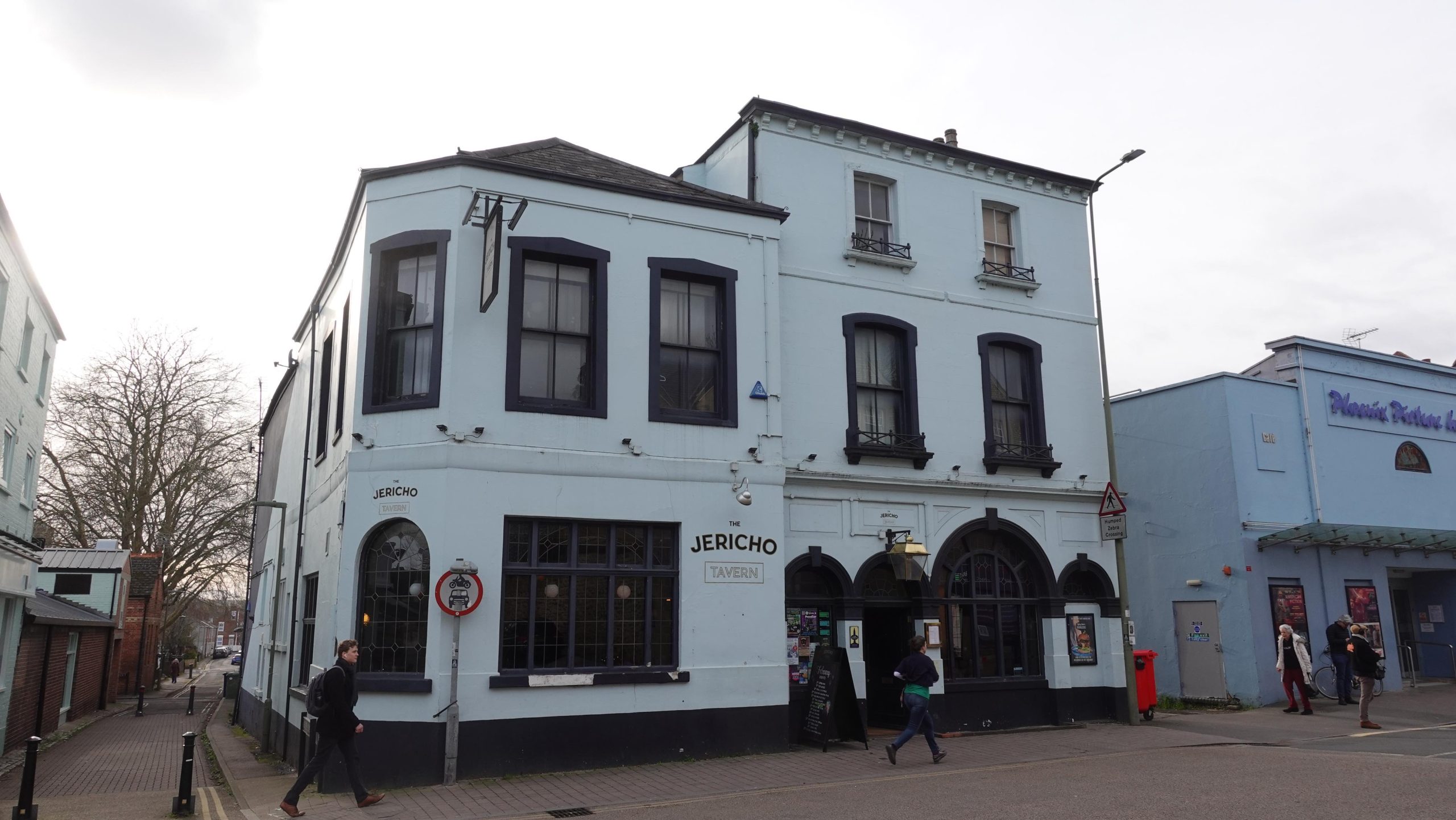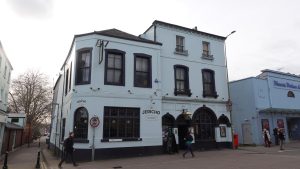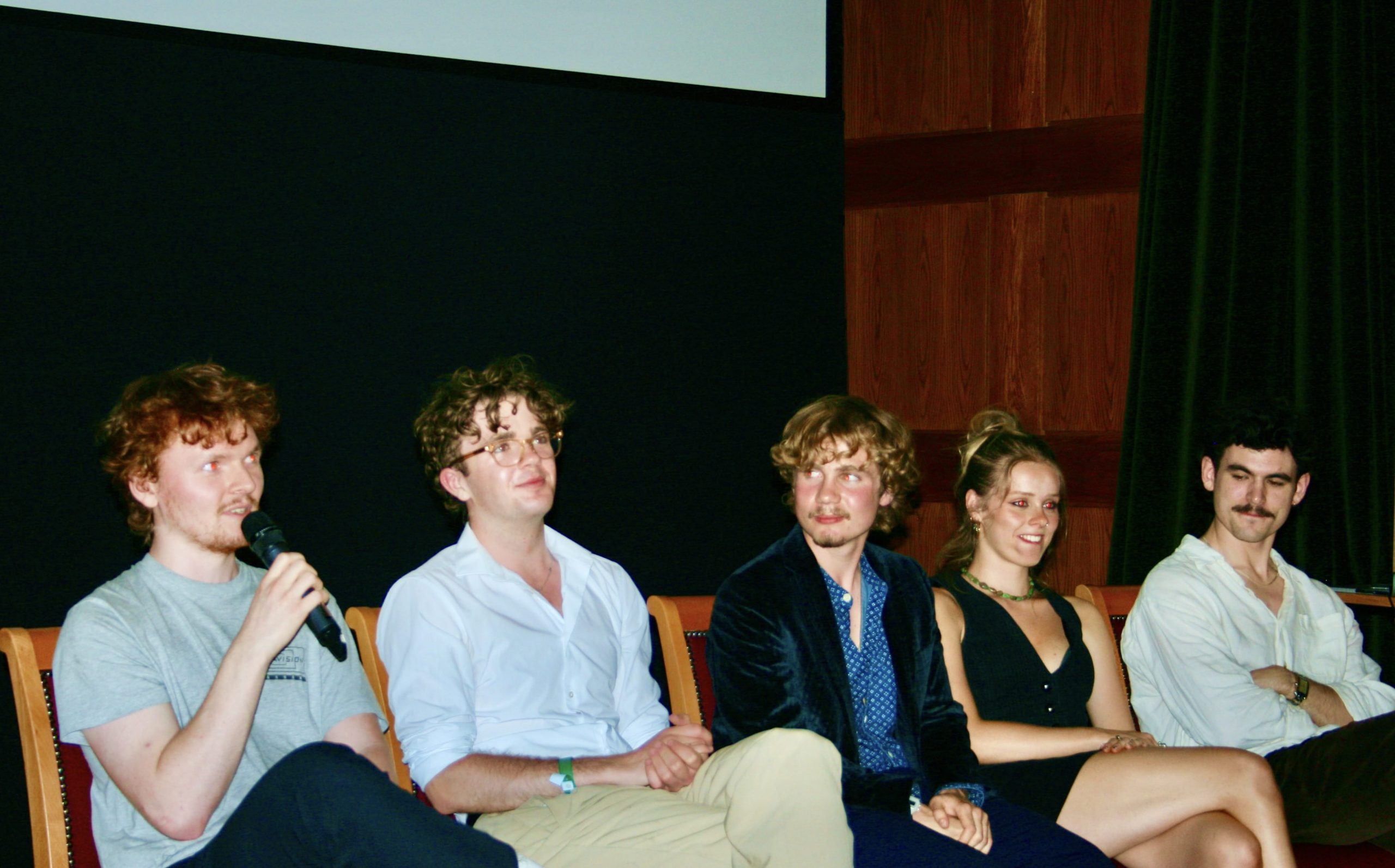
Icon of the Week: The Jericho Tavern

Dan Spencer is the general manager of the Jericho Tavern, the pub and music venue that spawned some of the 1990s’ most iconic musical acts.
I was sixteen when I first visited Oxford, and despite the protestations of my parents, I was wholly uninterested in the University and the city’s classic landmarks. My heart was set on seeing just one place: The Jericho Tavern. This was especially odd, since pandemic restrictions at the time meant the pub wasn’t even open. But it’s a site so rich in musical history that dragging my family away from the city centre to Jericho felt worth it. It was a bit of a full-circle moment for me, then, going to speak to Dan Spencer, the pub’s manager.
He initially worked for Greene King, before becoming an assistant in George Street’s O’Neill’s. Eventually, an opening for kitchen manager came up at the Jericho, soon morphing into general manager: encompassing not only the pub but the attached historic live music venue. Bands such as Bastille, Bombay Bicycle Club, Foals, and (more recently) Glass Animals have all played in the pub’s upstairs space. But for some now-legendary acts, the Jericho was more than just another venue to play—it was the most important moment in their nascent careers.
The most famous name to truly emerge from the stage of the Jericho is, indisputably, Radiohead. It’s up for debate when they actually played their first gig at the tavern—some sources cite 1986, others 1987. What is less up for debate is when they played their most important gig at the venue: November 1991, under their original name On A Friday. It was only their eighth gig, but it was attended by 25 A&R people from a variety of record labels, and it was only a few days later that they signed to Parlophone Records (then a subsidiary of EMI).
The performance also led directly to Radiohead’s first interview, in the Curfew Magazine, run by Ronan Munro, impresario of the early-90s Oxford music scene. Dan tells me that the links to Radiohead are the ones that they get asked about the most. Even their other gigs at the pub were crucial to their development as a band. At one of their earlier gigs there, local studio owner named Chris Hufford and Bryce Edge were, in their words, “blown away” by the performance, they just had to work with the band—something that turned into a four-decade managerial partnership between the two parties.
Another of the 1990s’ most iconic British bands was born from the Jericho: Supergrass. Exploding to national attention in 1995 with their punk-inspired debut album I Should Coco, Supergrass played their first ever gig in the pub in 1993, under the name Theodore Supergrass (it’s not hard to see why that one didn’t catch on). Even before they were Supergrass, future members Gaz Coombes and Danny Goffey played there as The Jennifers. Ronan Munro remembered Supergrass as “funny little 15-year-old scamps” hanging out outside the Jericho before they were old enough to even get in.
Supergrass returned in 2012 to play there again, picking up a PRS for Music Heritage Award in the process, and now there’s a plaque to them in the pub. As with Yorke, Gaz Coombes still pops in every so often, “just to get more of a feel for the place,” Dan tells me, “in terms of gigs, Gaz Coombes is the one that we’re really proud of.” This pride is clear: there’s a plaque to the band displayed fairly prominently in the pub’s main room.
It’s lucky that the Jericho is still here—midway through the 1990s, it was sold off and became part of the Scream pub chain. “It was very student-orientated,” Dan says, “like pound drink nights. Back then you could get away with charging a pound a drink. It was seen more as a party pub than a venue pub or a live music pub. Whoever was before me did really well in that they re-established the venue. Not necessarily as a driving force at first, but they actually brought it back into play.”
Under Dan’s management, the venue has become just as important as the pub, in no small part due to having Andy, the in-house sound engineer, to help with the venue. “They know the ins and outs of the sound system. It costs a lot of money. We don’t allow anyone else to go near, just to make sure no one ruins or damages it. It’s a lot to replace that kind of kit.” For a venue of its size, the acoustic quality of the venue is, genuinely, remarkable. Whilst comedy nights (especially during term time) and private functions also use the venue, having a sound system of this quality means that it still functions primarily as a live music pub, especially on the weekends.
Depending on who you ask, the Jericho holds anywhere between 100 and 200 people, something which, in 2024, is surprisingly unique for Oxford. Dan laments the closure of some of Oxford’s other iconic venues (such as The Cellar, which shut its doors in 2019), saying that it damages the scene as a whole. For many up-and-coming bands, who have decent cult followings but aren’t going to sell out the O2 Academy yet, places to play are now few and far between.
The Jericho occupies that middle range that these bands can thrive in. Dan explains, for example, how, over this coming summer, the Jericho is part of Metal 2 The Masses, an initiative to give metal bands a spot at the Bloodstock Festival (a metal festival with around 20,000 attendees). “I think that’s what I’m most proud of,” he says, “championing up-and-coming music as opposed to established artists, then they’re going onto bigger and better things.”
The pandemic notwithstanding (neither pubs nor music venues had it easy during the pandemic, let alone the two combined), the past few years have seen an upswing in the venue’s fortunes and reception, in no small part due to this focus on new, local music. “I took the venue on as my own little project,” Dan explains, “we managed to get good relations with promoters in the area to put on some more local stuff. From that, we started to get a bit of a better reputation for ourselves in terms of how we could handle live music, because I think it was a little bit ignored. They were still hanging onto the ‘glory days’ of the nineties: ‘We had Supergrass! We had Radiohead!’”
Nowadays, the three genres that dominate the Jericho’s calendar are indie, folk, and metal (clearly it’s still a guitar-centric venue): “indie is perhaps the driving force—harder indie—with more distorted guitars, especially in the past year or two.” I ask Dan if anyone playing in the Jericho has stood out to him in recent times, to which he singles out indie band Lacuna Common for their musical prowess and metal band Depolarize for their intense energy.
Despite the plaques on the wall, The Jericho Tavern is an establishment that doesn’t rest on its laurels, continuing to promote new artists and independent music (and good beer)—and, who knows, if you go to one of their gigs, you might be witnessing the germination of the next Radiohead or Supergrass.∎
Words by Albert Genower. Photo courtesy of Albert Genower.







